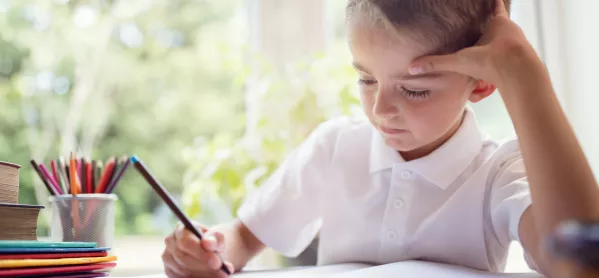My son is 8.
He is creative, thoughtful, curious, playful, intelligent, free thinking and moves at his own inimitable pace, seeing the world in glorious technicolor, pausing to inspect or comment on all that catches his attention or sparks curiosity.
This means that school can be hard for him sometimes, as he finds it challenging to process and retain information and to get his ideas down on to paper, not least because the pace, to him, seems too fast.
Yet he is thriving in lockdown. As such, when I read teacher Laura Webb’s article on the “grey” students who are thriving through home-based schooling, it was satisfying to know that the experience I was having as a parent is being witnessed by teachers, too.
Indeed, supporting him and his teacher (one of the thousands going above and beyond to maintain access to education for their students) with his home-based schoolwork over the past 10 weeks has been eye opening and enlightening.
The right learning environment
On one level, it has reinforced something that is often on my mind: the teaching methods generally employed in schools move too fast for my son and don’t support the way he learns best - a realisation many other parents are no doubt coming to.
The speed, intensity and repetitive nature that encompasses classroom-based learning - which is felt through the work that he is sent each day - is just not compatible with the ways in which he learns best.
However, working remotely has opened up a new avenue for him to find his own ways to learn and explore. Very often, he will do all of the week’s schoolwork in one or two days and then “give myself the rest of the week off”.
And he’s not using this self-created free time to laze around: he is newly motivated to undertake the tasks in his own timeframe, exploring to his heart’s content aspects of what he is being asked to work on that have sparked his curiosity.
This means endless hours on Google Translate translating his work into other languages, researching where a word originated from, finding out more about a particular author, artist, scientist or country, to name but a few.
All wonderful to see but almost certainly something he would never have had time for with more traditional schooling.
This is not teachers’ fault, of course - they are under heavy pressure to deliver, but it’s clear that lockdown has changed us all and education should evolve, too.
Every child can learn
Teachers should also take heart from this. Those grey students who seem disinterested or do not engage are not unwilling to learn - it’s just that the environment doesn’t suit them.
Providing time and space for them to find their own ways into a topic can do wonders for their motivation and learning.
Finding ways to harness this and incorporate it into future lessons or homework may come more naturally to teachers now who will have had their understanding of what the seemingly “grey” students can achieve if given the right prompts.
Facilitating schoolwork via apps and online frameworks, as has been necessary during lockdown, has opened up additional and varied ways of not only educating children but also accessing education. This must not be forgotten.
A joy we must capture
Overall, the experience of watching my son thrive in lockdown has been an utter joy and I have to admit that I am looking forward to another few months with him pottering about at his own speed, absorbing the world around him in ways that many of us tend to lose as adults.
I wonder about the possibility of employing some of the positive opportunities that have arisen from our time educating at home and carrying that through to how my son’s education could look come September.
I hope that teaching staff and policymakers can use this experience that we’ve all been unexpectedly thrust into for best potential effect: to broaden and deepen the way in which we educate our children and how they access that education.
Lucie Weaver is a psychology researcher at the University of Bristol
